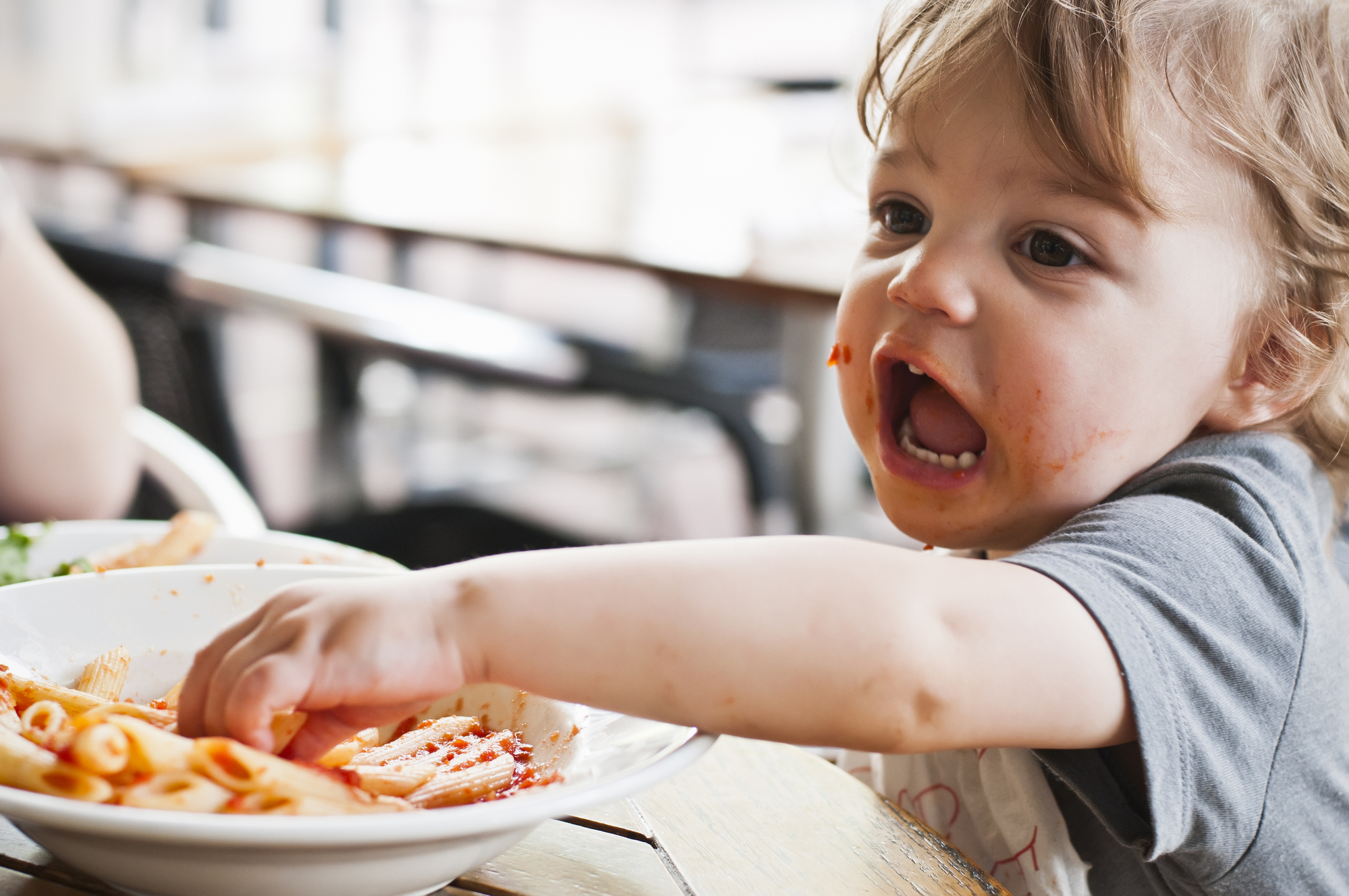“I did not like mess so I stopped him from feeding himself, is this a problem, is this why he is such a fussy eater, asked Rebecca?
Take a deep breath. It is unlikely that this is turning your child into a fussy eater ! There are many reasons why a child may be a fussy eater! As I do assessments for each child and family I work with I find it is often a combination of factors.
However, if you find you are very reactive around mess at mealtime, it may be worth thinking about the impact this may have on raising a confident eater who can tackle most foods.
Parents who tell me they are “freak clean” also tell me that to avoid their child and house getting messy:
- They do not allow their babies and toddlers to self-feed or explore food in a playful manner.
- They wipe their child’s face often during meals,
- They avoid serving runny, sticky textures like sauce and dips,
- They are quick to react to mess with disapproving statements or cleaning up action as soon as a speckle of food is dropped.
Please note if you find your freak neatness is compulsive then it may be wise to seek help.
Not allowing a child to self-feed can backfire
Children who are not allowed to self-feed or explore their food in a playful manner may develop a lack of interest in feeding time. They may become disengaged and passive during feeding. They may become concerned about mess themselves.
Confident and competent eaters need to learn to self-feed and engage with food on their own terms. Toddlers are usually quite good at letting you know they want to feed themselves.They need room to explore food so that they know it is safe. How do you rate yourself? Are you a little bit excessive or quite controlling?
Children explore food with their senses of sight, smell, touch and taste. Touching gives ample information as to what the temperature as well as the texture may be. For example a food may be hot and sticky or cold and wet. This is important information before they bring food to their mouth.
Some children I see have difficulties touching food or getting messy. When coupled with fussy eating this can be concerning, read more here about sensory food aversions.
Wiping faces during meals can upset your child
It is unwise to clean a fussy eater’s face during mealtime (unless they are the ones requesting). Most children do well to learn to handle a bit of sticky food on their face for a little while, rather than get super upset- especially if they are always cleaned up. Fussy eaters may learn negative associations with sitting down for a meal and being cleaned up at the table. As much as it may be tempting to scrape their face with a spoon or a cold wet wipe, it is best to refrain. Would you rather a sticky food scraped with a metal spoon off your own face, or a warm wet cloth?!
At the end of the meal, children can be washed away from the table, perhaps it is even time for bath or shower.
Avoiding sauce and dips is not a good idea
Fussy eaters may have sensory food aversions, offering dips and sauces with meals for them to explore with their meal is a good idea. Removing these sticky, sometimes challenging textures, is depriving children of an important exposure as well as a possibility to explore mixing those textures with other food.
It is best to keep offering those in their varied colours and textures for exposure as children are building familiarity.
Having a negative reaction can raise anxiety
Recently I worked with a family whose little boy always points out mess. At times he would get quite unsettled. Mum would get upset when he made a mess, she would also frown or make a negative comment. It seems to me her child was picking up on this and getting quite anxious.
Mum has now learned to avoid aggravating comments or behaviours. She only acknowledges her child if he comments, and she stays matter of fact: “it fell off, or it is sticky”. Then she moves on. She cleans after the meal has ended and everyone is happier with this new habit.
Accepting that mealtimes are messy is key
Accepting that mealtimes are messy does not mean your child can trash the dining room. Here are some things you can do to limit the toll on you:
- If your child throws food on the floor teach them that food stays on the table, if the food is offensive to them, will they move it to a side plate? You could serve family style, which will help to reduce the problem.
- If they keep throwing food on the floor to get your reaction, is it time you stopped reacting?
- If they keep throwing food on the floor, ask them if they have had enough to eat. It may be the end of the meal and time to move on.
- If they are starting to mess up with food on their plate and tray, again it may be time to move on, a minute of play here is plenty.
- If you want to provide a great deal of sensory exposure think about using the outdoors for extra- messy, sticky, play. You can buy wonderful sensory play areas here.
- You can use splash mats and place them underneath your children’s chair.
Feeding young children implies that you will endure some degree of mess for many years. It is doing some good though as children learn life-long skills to feed themselves. The sooner you can accept the mess the better.Years later you may ask yourselves what was the worse mess you endured: a messy kitchen or a teenager’s filthy bedroom? If you feel that your child is struggling with touching food, you may be interested to read this. If you find that you are struggling still why not download my free ebook, Ready to turn the tide on stressful family dinners? . It covers my top starter tips to raising a happy, healthy eater.
To view on YouTube:









